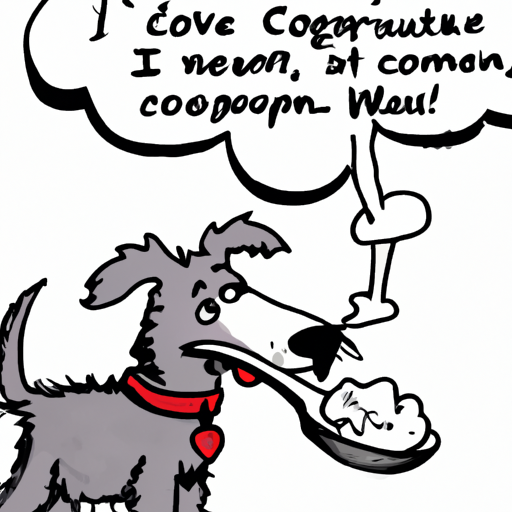Introduction
You’ve likely noticed that your canine companion seems to go wild for whipped cream. Maybe you’ve seen their eager eyes watching you as you top your hot cocoa with a dollop of the frothy treat, or perhaps you’ve given in and let them have a lick or two. But what causes this seemingly universal love of whipped cream among dogs? Let’s dive into the science, the psychology, and the culinary aspects of this phenomenon.
The Attraction to Sweetness
Like you, your dog has taste buds that respond to different types of flavors. One of these is sweetness. Dogs, as it turns out, have a taste for the sweet stuff just like us.
-
Sweet receptors: Dogs have about 1700 taste buds, compared to our 9000. But even with fewer receptors, they can still pick up sweet tastes, albeit less intensely than we do.
-
Caloric content: Sweet foods are often calorie-rich, which from an evolutionary standpoint, is beneficial for survival. So, the preference for sweet things like whipped cream could be an innate survival instinct.
-
Positive association: If you’ve given your dog whipped cream before and they’ve enjoyed it, they are likely to associate the treat with positive feelings and reinforcement, making them want more.
While it’s okay to treat your dog to a little whipped cream now and then, remember that moderation is key. Too much sugar can lead to obesity and other health problems in dogs, just like in humans.
The Creamy Texture
Another reason dogs may love whipped cream is its texture. Dogs have fewer taste buds than humans, but their sense of smell and texture appreciation can make up for this.
-
Unique texture: Whipped cream’s light, airy texture can be a novel sensory experience for dogs, making it fun and enjoyable to eat.
-
Easy to eat: The softness of whipped cream makes it easy for dogs to swallow, which can be a plus for older dogs or those with dental issues.
The Social Aspect
Dogs are pack animals, and they often take cues from their human pack members. So, when they see you enjoying whipped cream, they may want to join in.
-
Mimicry: Dogs often mimic their human companions. If they see you enjoying something, they may want to try it themselves.
-
Bonding: Sharing food can be a bonding experience between you and your dog. They see it as a sign of love and trust.
While it’s heartwarming to bond with your dog over food, remember that not all human foods are safe for dogs. Always check with your vet before introducing a new food to your dog’s diet.
Health Considerations
When given in moderation, whipped cream can be a harmless treat for most dogs. However, it’s important to consider potential health implications.
| Consideration | Details |
|---|---|
| Caloric content | Whipped cream is high in calories and should only be given in small amounts to avoid weight gain. |
| Lactose | Some dogs are lactose intolerant and may experience digestive upset from dairy products. |
| Sugar | Excessive sugar can lead to obesity and diabetes in dogs. |
| Xylitol | Some whipped creams may contain xylitol, a sugar substitute toxic to dogs. Always check the label. |
FAQs
Q: How much whipped cream can I give my dog?
A: As a rule of thumb, treats should make up no more than 10% of your dog’s daily caloric intake. A small dollop of whipped cream should be fine for most dogs, but always consult with your vet.
Q: Can puppies have whipped cream?
A: Puppies can have a small amount of whipped cream, but be cautious, as their digestive systems are more sensitive.
Q: Can whipped cream harm my dog?
A: In large amounts, or if it contains xylitol, whipped cream can be harmful. Always check the label and moderate the amount you give your dog.
Q: Can I give whipped cream to my dog regularly?
A: Given its high sugar and calorie content, whipped cream should be an occasional treat, not a regular part of your dog’s diet.
In conclusion, dogs’ love of whipped cream can be chalked up to their attraction to sweet flavors, the unique texture of the treat, and the social bonding that comes from sharing food with their humans. However, whipped cream should be given in moderation, considering its high sugar and calorie content. Always keep your furry friend’s health in mind when treating them to human foods.



